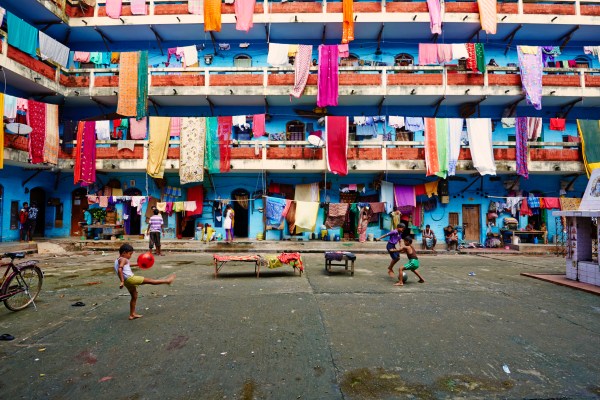In Silicon Valley the term “hacker” has evolved to connote high praise for someone particularly creative, ingenious and adept at finding clever new ways to accomplish a difficult task. It’s with that framework in mind, rather than some of the other meanings that “hack” usually represents, that I suggested during my recent TEDx talk that Pope Francis and the UN are hackers of poverty.
Global poverty qualifies as a difficult task. It must be, because even with all the money spent on helping to lift people out of poverty — an estimated $150 billion in 2013 alone — 4 billion of the world’s nearly 7.5 billion people still live on an average of less than $4 a day.
And here are some other daunting statistics on the effects of poverty:
1.1 billion people lack access to safe drinking water.
- 2.5 billion people practice open defecation, spreading diarrheal diseases such as cholera, typhoid and intestinal worms that kill a child every 20 seconds.
- 1.6 billion people live off the grid, and another 1 billion have unreliable grid access.
- 3 billion people cook on open-wood fires, creating indoor air pollution that prematurely kills 4.3 million people per year, mostly women and children.
- Small farm-holders are among the 3 billion people worldwide who are excluded from current financial systems — unable to invest in simple things like drip irrigation or fertilizer to increase their yields, or refrigeration to store things like milk generated from their cows and goats.
These ill effects of poverty are likely to get only worse, due to three trends:
- We’ll have 2 billion more people on the planet by 2050. Most of the population growth will happen in Africa and Southeast Asia. So while the rates of poverty might decline, the absolute number of people living in poverty could increase.
- We’re experiencing the largest wave of urban migration in the history of humankind. Already more than half of our global population lives in cities, moving in search of better jobs. But too often, urban migrants lack the skills or access to education that would enable them to find work. They end up destitute and unable to forage for food, like they could in the rural environments they left behind.
- We’re on a trajectory to a 4° Celsius increase in global mean surface temperature by the end of the century, far beyond what most scientists consider catastrophic. While everyone will suffer from the effects of climate change, the poor will feel it first and most severely. Food insecurity will intensify from drought, heat waves and ocean warming and acidification.
More people on the planet have access to mobile phones than to toilets.
Unfortunately, attempts so far to alleviate poverty — typically in the form of centralized, official development or government assistance — are not working. That’s where the “hacking poverty” idea emerges. What would a poverty hacker do differently?
Two hacks for poverty: distributed systems and social entrepreneurship
The most successful distributed system to date is mobile technology. With 6.8 billion mobile subscriptions worldwide, more people on the planet have access to mobile phones than to toilets. Using this near ubiquity of mobile technology, poverty hackers are changing the economics of poverty through new strategies for investments, loans and credit. Already, mobile money in the global south is leapfrogging the global north’s centralized banking paradigm.
Social entrepreneurship is proving its worth throughout the developing world by applying established business principles and practices to poverty-related issues. Unlike top-down aid approaches, social entrepreneurship fosters and supports solutions created within communities of poor and marginalized people, making those solutions more likely to be adopted and sustained over time.
Social enterprises are hacking poverty by revolutionizing how energy and food are provided in the developing world, and also how solutions are financed, distributed and sold — and by shifting the economic dynamics toward the poor themselves.
Where do Pope Francis and the United Nations fit into this conversation about hacking poverty? The pope’s recent Laudato Si’ encyclical, and the recent UN Sustainable Development Goals (SDGs), echo the same messages and call for essentially the same outcomes: The system is broken. It needs to be hacked.
Pope Francis and the U.N. SDGs provide guidelines for how we can do things differently, more creatively, more effectively. Now, it’s up to all of us to follow through and take action — to become hackers of poverty in whatever ways we can. There’s literally no time to waste.
